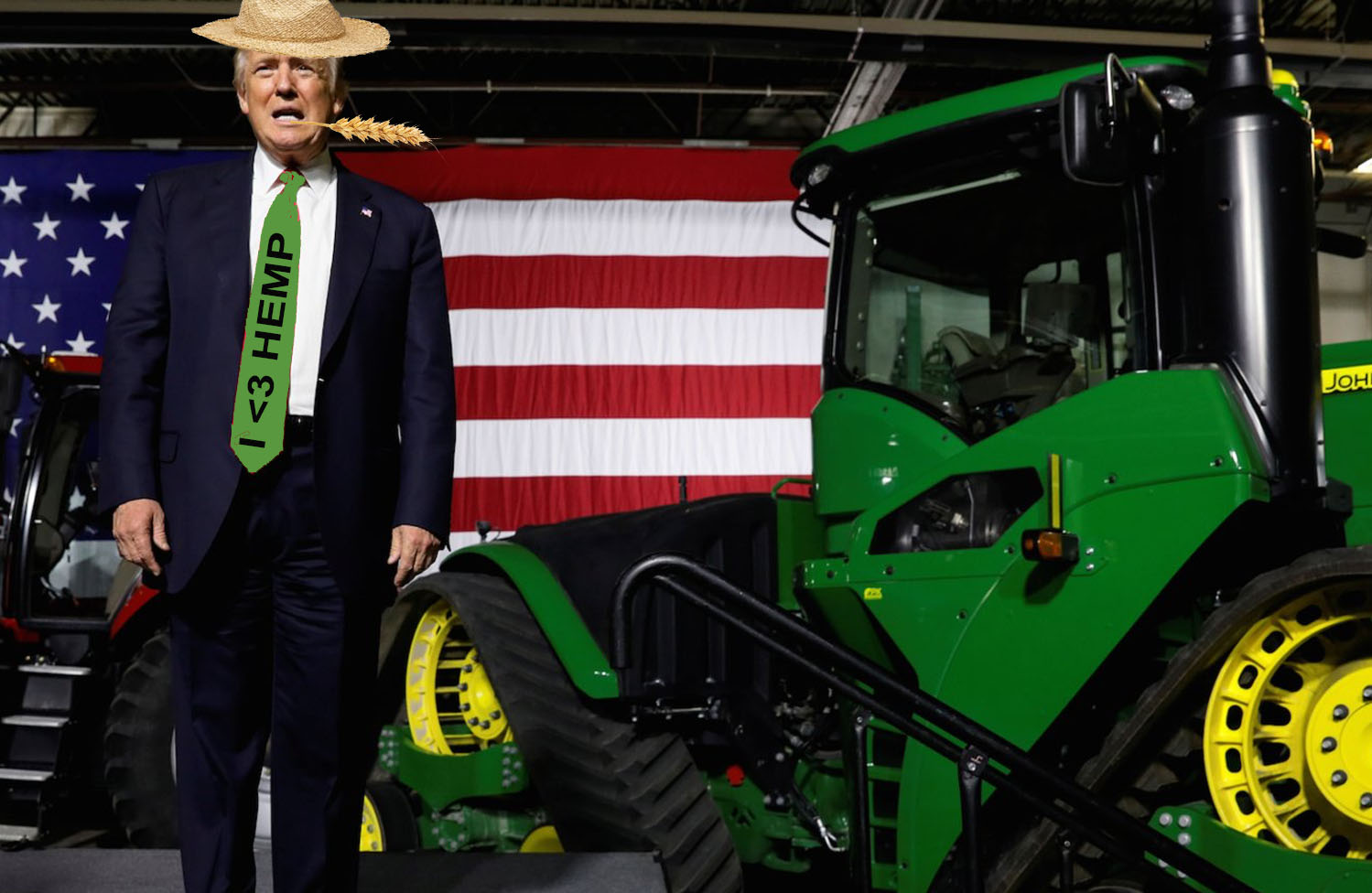So, What’s Up?
Inch by inch, row by row, a legislative quid pro quo was reached on Tuesday when the Senate almost unanimously voted to approve the $867 billion farm bill, more specifically referred to as the Agriculture Improvement Act of 2018. For those of us with thumbs any other shade than green, this may seem like just another irrelevant piece of legislation passed by Congress, but let me tell you two things, friend. First of all, no piece of legislation is ever irrelevant, I can’t believe you’d even say that, and secondly, the farm bill’s passing will impact your life more than you think.
Following the 87-to-13 vote in favor os passing the Agriculture Improvement Act, the bill will now head to the House for their approval or rejection, however, it is highly unlikely that the House will vote down the bill given its bipartisan support, including the bill being heralded by President Donald Trump, himself.
Oh SNAP
Perhaps the most controversial component of the farm bill has to do with the debate surrounding the Legislative branch’s feelings on food stamps, also known as the Supplemental Nutrition Assistance Program (SNAP). Not to be confused with the failing social media platform, the SNAP program allows low-income individuals and families to be able to purchase groceries at little to no cost to them. Prior to the Senate vote, House Republicans proposed some sneaky changes to the farm bill’s section regarding SNAP. According to the Washington Post, the changes sought to “impose work requirements on those ages 49 to 59 who get food stamps,” as well as “force states to impose work requirements on parents with children ages 6 to 12,” resulting in potential cuts to benefits for 1.1 million households.
However, by the time the farm bill made its way to the Senate floor, none of the House Republican cuts to food stamps were included in the bill’s language. Having said that, several media outlets have indicated that the Trump administration still may try to cut food stamps without Congressional approval, and even the House votes to pass the farm bill, the White House can still decide how they’d like to proceed, according to congressional aides.
“The negotiators appear to have achieved bipartisan compromise that maintains and modestly strengthens SNAP, ensuring that millions of struggling Americans will continue to be able to count on SNAP to help them put food on the table.”
–Robert Greenstein, President, Center on Budget and Policy Priorities
The Farm Bill Increases US Hemp-erature
As with any piece of legislation that makes its way to Congress, there are typically a few interesting nuances that, if passed as a whole, will create change that far surpasses the attention given to said language. Amidst the 807-page farm bill, with all its legal jargon and impressive statistics about crop yields, is a provision that would legalize the growth of hemp for US agricultural farms. Ever since the 1970s, Hemp has been a Schedule I federally controlled substance, sharing a domicile with LSD, heroin, and Ecstasy, because the US government was worried that police officers wouldn’t be able to discern hemp from marijuana. If you, too, don’t understand the difference, allow me to briefly explain. Hemp and marijuana both come from the cannabis plant, but hemp has none of the psychoactive properties that would cause a consumer to become “high.”
Assuming the House passes the farm bill, hemp’s legalization may catalyze impressive growth for embryonic US cannabis industry, that some forecast could hit $20 billion by 2022, according to CNBC. Although consumers can purchase hemp-based products like shampoos and lotions in groceries stores across the country, the real cheddar will come from products made with the non-psychoactive compound CBD, cannabidiol. CBD can be extracted from hemp using the same process as marijuana, but farmers would be able to grow large crops of hemp if federally legalized. Presently, global medical experts are developing new ways for utilizing CBD in treating epilepsy, multiple sclerosis, and other physical ailments, given the compound’s ability to work as an anti-inflammatory.
“In the long run, it’s all going to be managed and controlled by the U.S. Department of Agriculture, just like corn, soybeans and everything else. It will also become an agricultural commodity, which in turn will allow crop insurance and Wall Street will be able to invest institutional funds into the hemp industry.”
–Chris Boucher, Chief Executive Officer, Farmtiva





